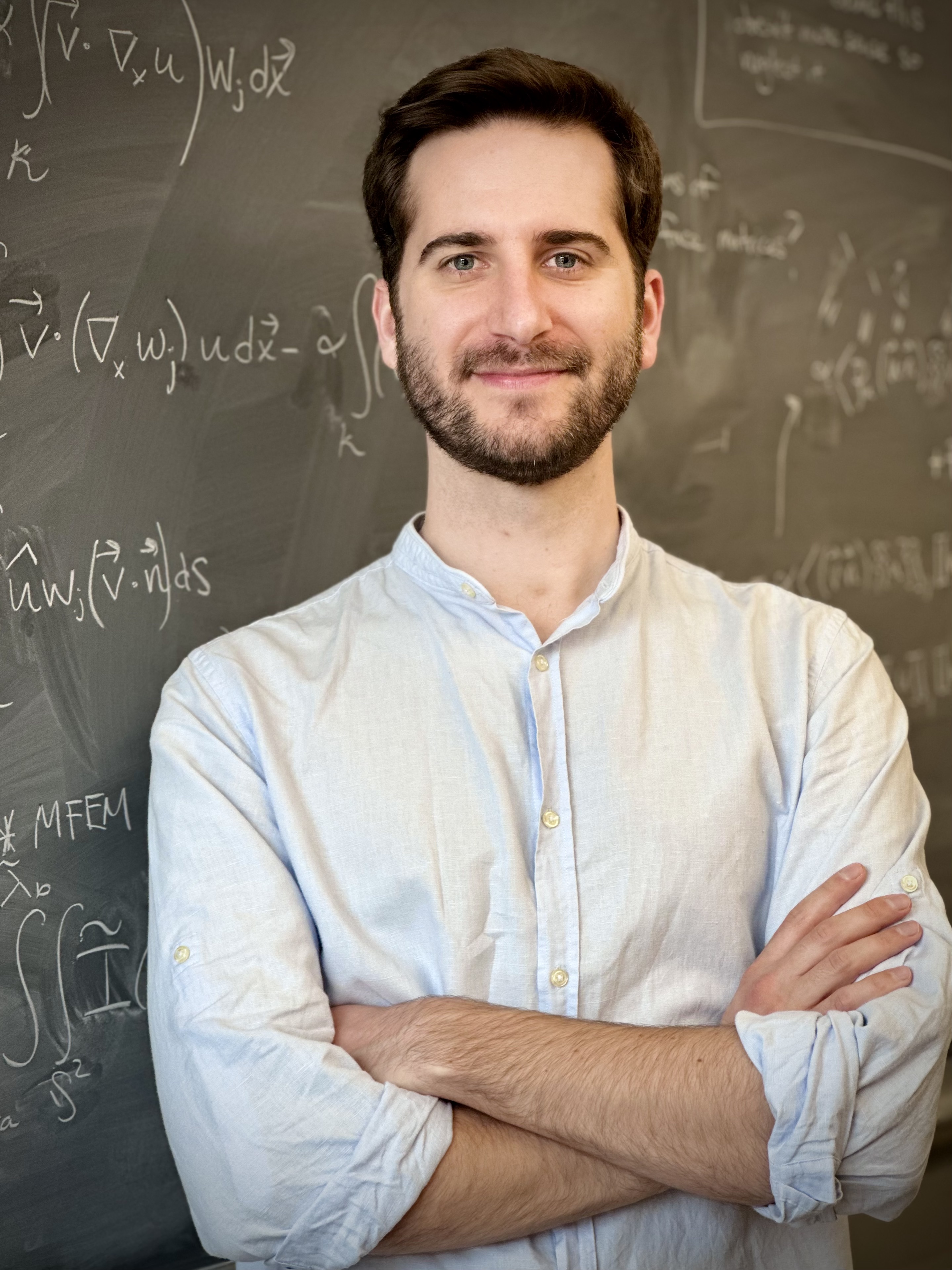Matteo Croci, a research associate at the Oden Institute for Computational Engineering and Sciences at The University of Texas at Austin, was recently awarded one of the European Union’s most prestigious grants: the Marie Skłodowska-Curie Fellowship.
The European Union has pledged to achieve net-zero carbon emissions and climate neutrality by 2050 and the use of hydrogen as green fuel and renewable energy storage was deemed essential for this objective. However, significant challenges with clean hydrogen production and large-scale storage still persist. As part of the fellowship, Croci will apply his expertise in reduced- and mixed-precision computing to design new energy-efficient algorithms that can guide European hydrogen storage capabilities. For this purpose, he will develop new techniques for inverting multi-scale electromagnetic measurements and map the Earth's subsurface in real time. The fellowship will be carried out at the Basque Centre for Applied Mathematics (BCAM) in Bilbao, Spain.
Croci currently works with the Predictive Engineering and Computational Science (PECOS) and Willcox Research Group at the Oden Institute for Computational Engineering and Sciences at The University of Texas at Austin. He received his BSc in mathematical engineering at Politecnico di Milano (Italy) in 2014, an MSc in Mathematical Modelling and Scientific Computing at the University of Oxford (UK) in 2015, and a PhD in Mathematics from the University of Oxford in 2020. His other areas of expertise include the development of multifidelity Monte Carlo methods for uncertainty quantification. At the Oden Institute, Croci has been designing new Monte Carlo methods that can tackle the complexity of plasma torch simulations.
“It is a great honor and a great achievement. It is a very competitive grant, and I am very happy and grateful, and also very excited to start. The Marie Curie fellowship is great in terms of financial support, but its most attractive features are the freedom to carry out my own research and the career boost it gives, which will hopefully help me obtain a permanent position in the future,” Croci said.
The Marie Skłodowska-Curie Actions (MSCA) is the European Union’s flagship funding program for doctoral education and postdoctoral training of researchers. The MSCA programs fund excellent research and innovation and equip researchers at all stages of their career with new knowledge and skills, through mobility across borders and exposure to different sectors and disciplines. The MSCA builds Europe's capacity for research and innovation by investing in the long-term careers of excellent researchers.
